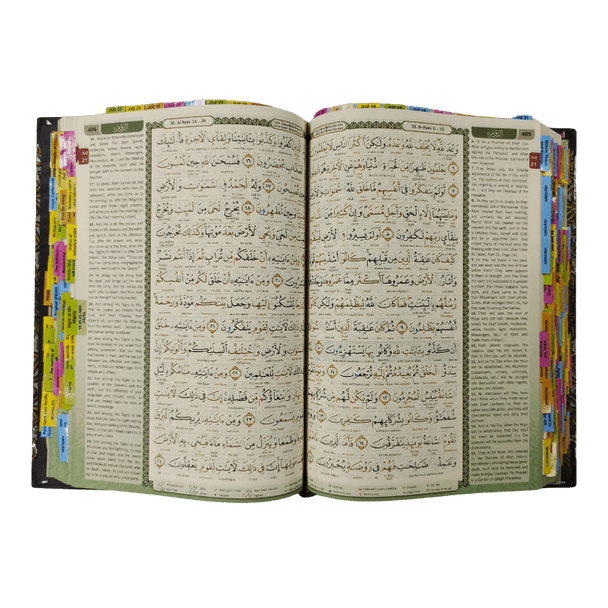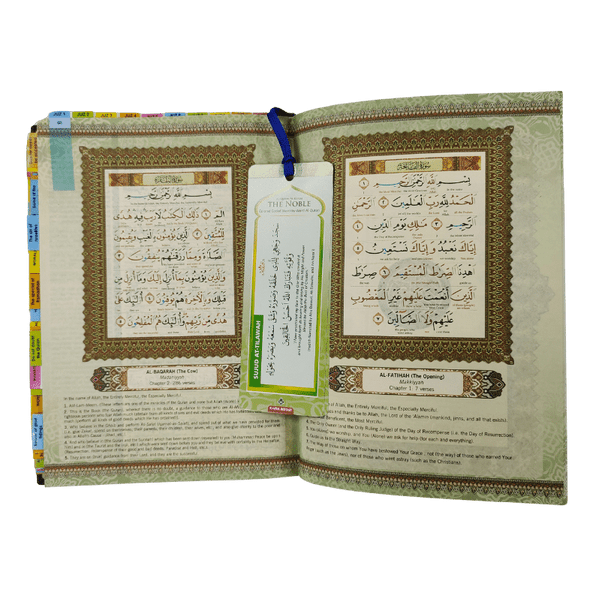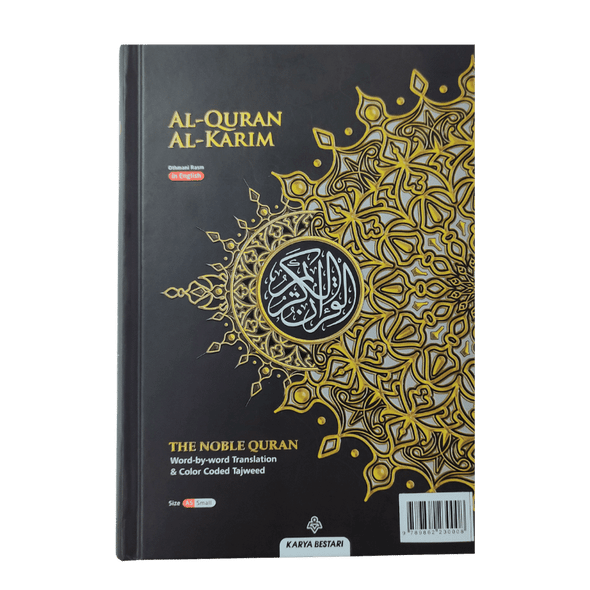Description
Special Limited Edition A4 & B5 Size TAGGED Maqdis Noble Quran With Important Tagging Word For Word Colour Coded Tajweed Arabic-English Translation
The Othmani script, also known as the Uthmani script, is one of the most widely used scripts for writing the Quran. It is named after the third Caliph of Islam, Uthman ibn Affan, who standardized the text of the Quran during his reign (644-656 CE).
The Othmani script is characterized by its clear, well-defined letters and diacritical marks, making it easy to read and recite. It is highly revered by Muslims worldwide for its simplicity and beauty.
In the Othmani script, each Arabic letter is carefully crafted and proportioned, enhancing the aesthetic appeal of the Quranic text. Diacritical marks, such as vowel signs and other phonetic indicators, are meticulously placed to ensure correct pronunciation and recitation.
This attention to detail is crucial for accurately preserving the pronunciation and meaning of the Quranic verses.
Furthermore, the Othmani script is distinguished by its adherence to strict calligraphic rules, ensuring uniformity and consistency in the presentation of the Quranic text.
Calligraphers and scribes meticulously reproduce each letter and mark, following established guidelines to maintain the script's integrity and authenticity.
Overall, the Othmani script represents a harmonious blend of artistry and functionality, serving as a timeless symbol of reverence and devotion for Muslims worldwide.
Its elegant design and precise execution exemplify the meticulous care with which the Quran, the holy book of Islam, has been preserved and transmitted through generations.




















